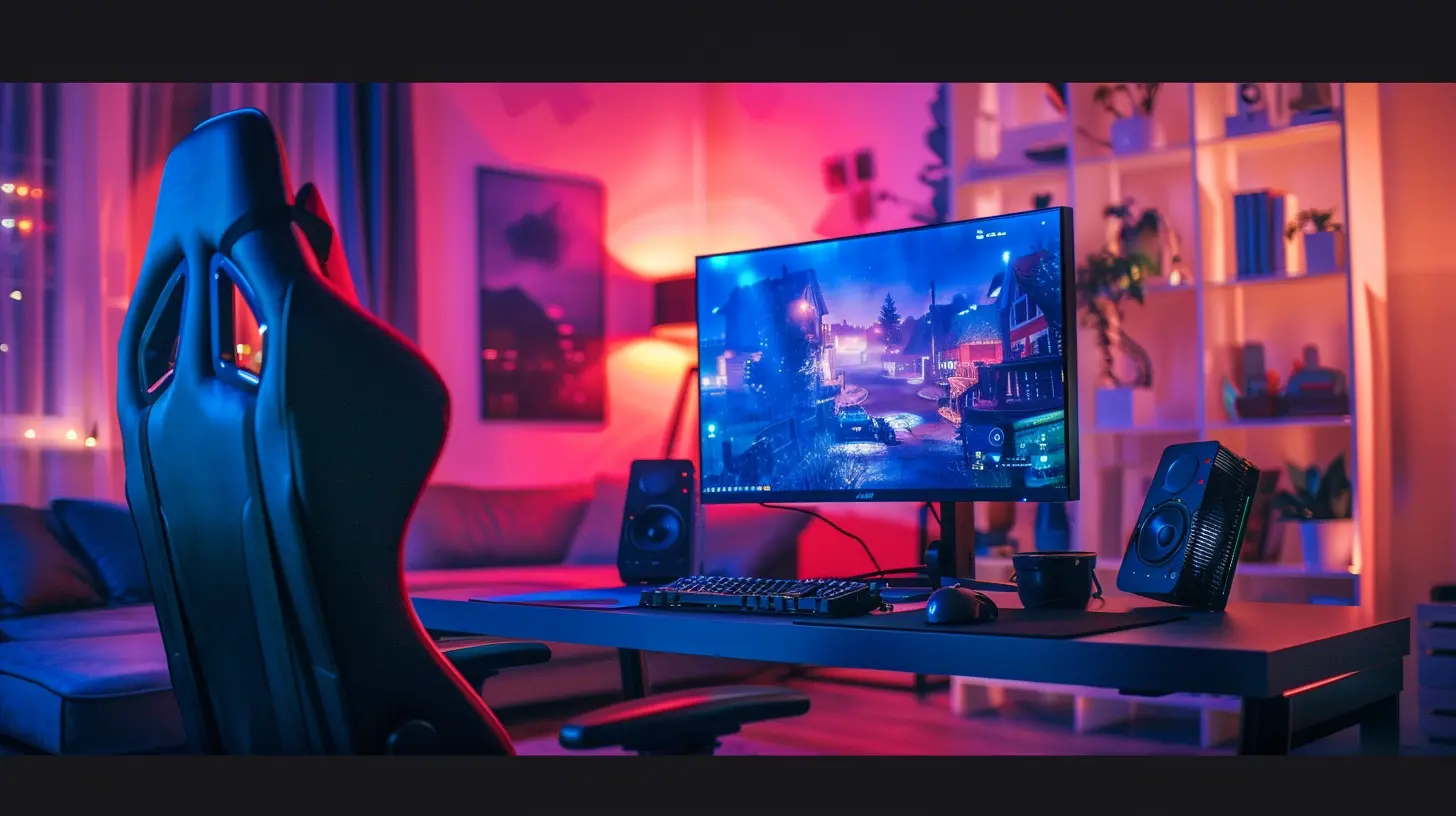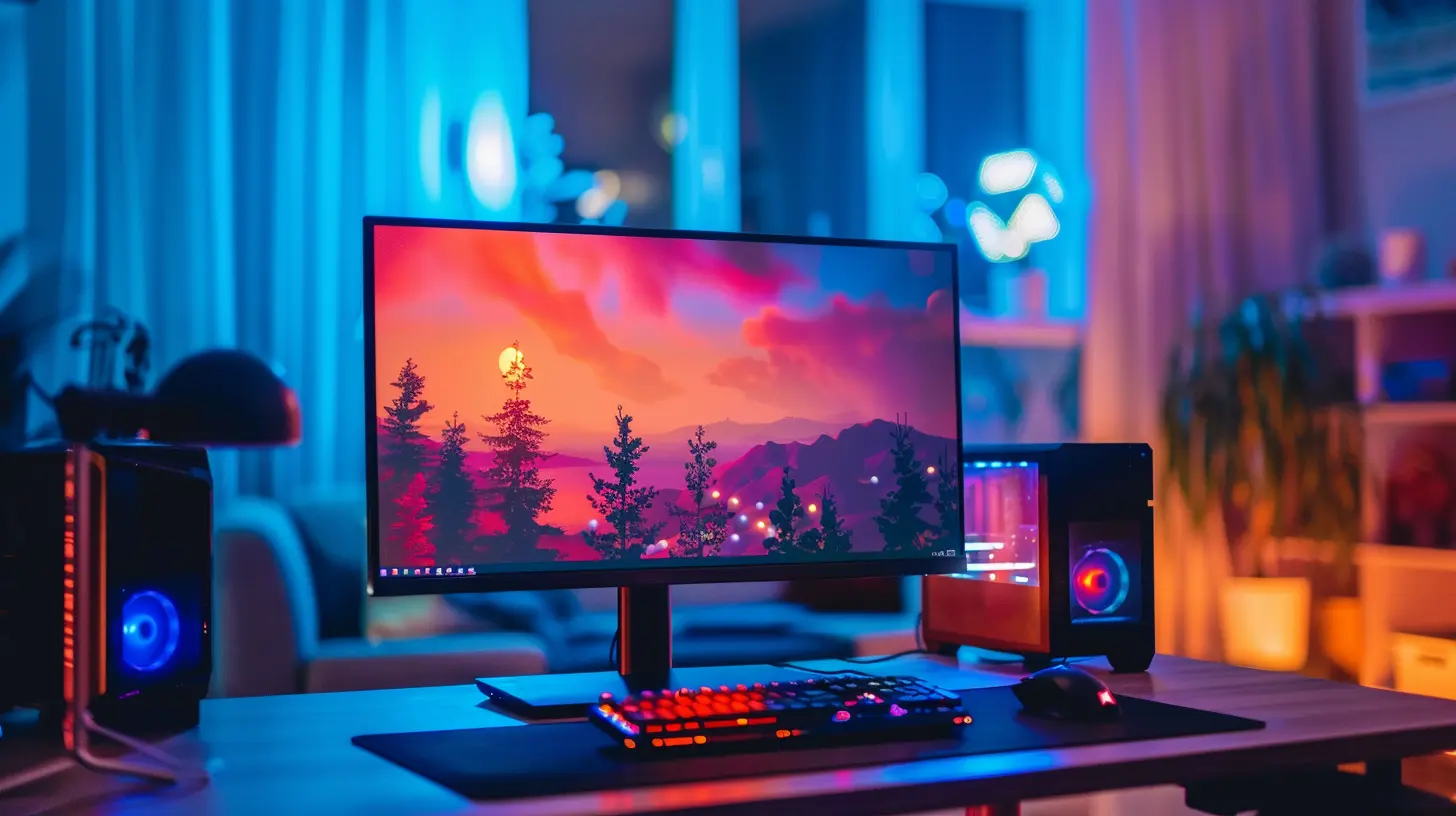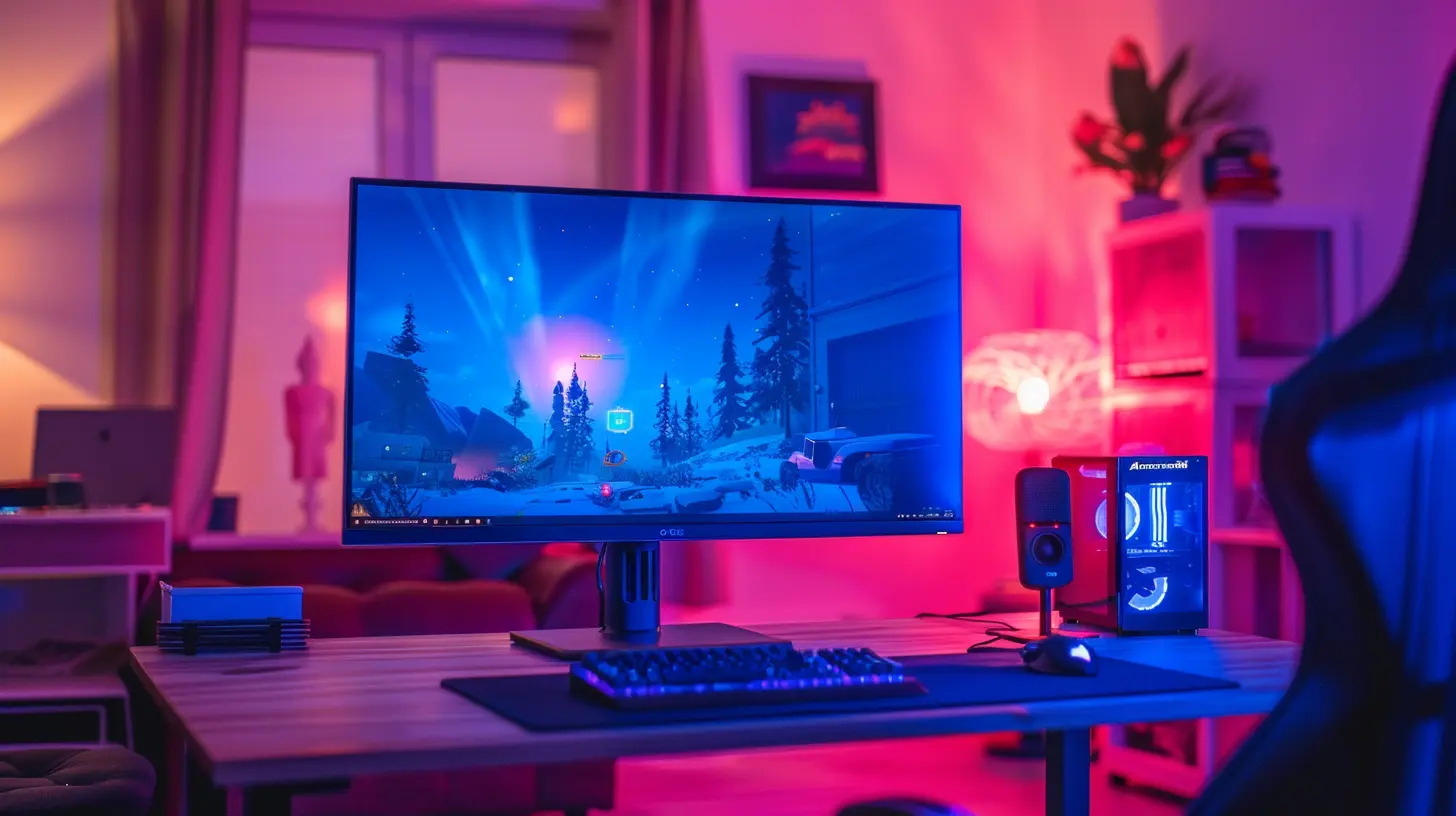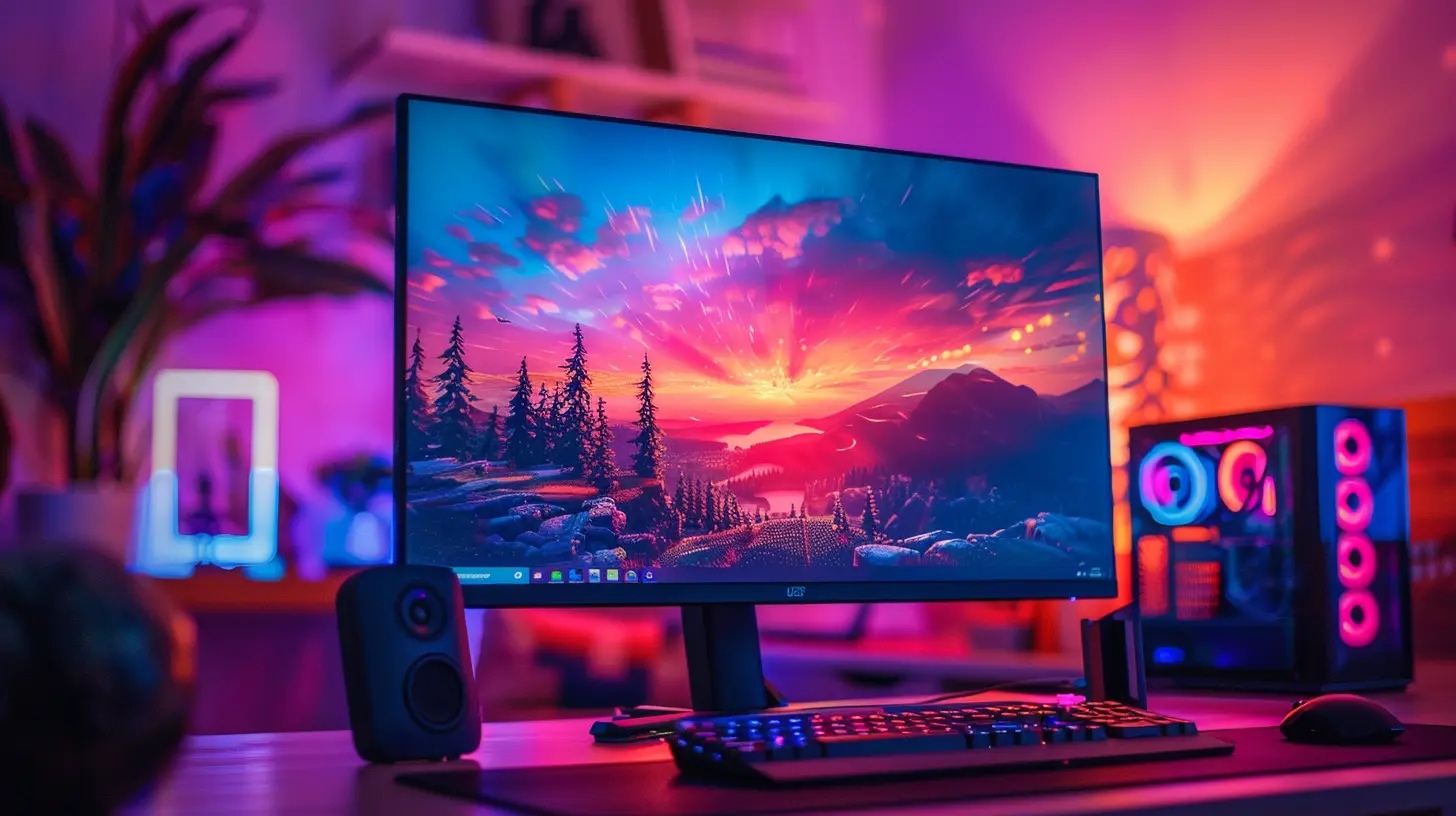Top Features to Look for in a Gaming Monitor
13 September 2025
Alright, gamers — let’s get real for a second.
We all know that a gaming setup is only as good as its weakest link. You could have a beast of a GPU, RAM that runs smoother than silk, and a custom-built rig that costs more than your monthly rent... but if your monitor sucks? That silky smooth gameplay turns into a stuttering mess of frustration and eye strain.
That’s why picking the right gaming monitor isn’t just important — it’s everything.
In this guide, I’m breaking down the top features to look for in a gaming monitor. No fluff, no confusing technical jargon — just straight-up advice so you can make the best choice without pulling your hair out.
Let’s dive in.
🖥️ Refresh Rate: The Secret Sauce to Smooth Gameplay
If there’s one number you should be paying close attention to, it’s the refresh rate. Measured in Hertz (Hz), this tells you how many times your monitor updates the image per second. The higher the number, the smoother the animation.Here’s a quick breakdown:
- 60Hz: Your everyday office monitor. Passable, but not ideal for gaming.
- 75Hz – 100Hz: Better. Games feel a little smoother.
- 144Hz: Sweet spot. Competitive gaming without breaking the bank.
- 240Hz & beyond: For ultra-competitive pros chasing every millisecond.
Want to really feel that buttery-smooth FPS action in Warzone or Valorant? A 144Hz or 240Hz monitor changes everything. It’s like switching from dial-up to fiber internet — once you see it, you can’t unsee it.
⚡ Response Time: The Blink-and-You-Miss-It Factor
Imagine clicking your mouse and your screen takes an extra beat to show you what happened. That delay? That’s bad response time.Response time is how fast a pixel changes from one color to another, usually measured in milliseconds (ms). For gaming, 1ms to 5ms is the sweet range.
Why does this matter?
Because slow response times lead to motion blur and ghosting. That’s when your on-screen character leaves a little trail behind them, and trust me — in fast-paced games, that makes everything feel mushy and off.
Go for a monitor labeled as “1ms” if you can. It’s not a marketing gimmick — it seriously helps.
🎮 Input Lag: Delay Kills (Literally)
This one’s a bit sneaky because it’s not always listed in monitor specs.Input lag is the delay between your action (like pressing a key or moving your mouse) and the monitor actually displaying it. While refresh rate and response time handle visuals, input lag is what affects the feel of control.
Low input lag = more accurate gameplay.
Aim for something with less than 10ms input lag. Pro gamers go for 1ms-5ms lag to keep that super tight reaction time.
📺 Resolution: How Sharp Do You Want It?
Resolution is all about how many pixels your screen displays — in simple terms, how detailed everything looks.Here are the usual suspects:
- 1080p (Full HD): Most common, perfect for mid-range systems.
- 1440p (QHD): A crisp sweet spot. Looks sharp without hammering your GPU.
- 2160p (4K UHD): Insanely detailed, but needs a powerful graphics card.
Want rich, vivid visuals? 1440p is a great balance. It’s like the difference between watching a movie on VHS and Blu-ray. Everything looks tighter, colors pop, and you’ll spot enemies hiding in shadows way faster.
⚛️ Panel Type: TN vs IPS vs VA
Panel types can get confusing, but I’ll break them down real simple for you:- TN (Twisted Nematic):
- Fastest response times
- Cheapest
- Bad viewing angles and color accuracy
- IPS (In-Plane Switching):
- Gorgeous colors and wide viewing angles
- Slightly slower (but still fast enough for most gamers)
- More expensive
- VA (Vertical Alignment):
- Great contrast and deeper blacks
- Decent for casual gaming
- Slower response times
If you’re into competitive FPS games, TN is your go-to. If you’re more into immersive single-player RPGs or care about eye-popping visuals, IPS is an easy win.
🌈 Color Accuracy & HDR Support
Let’s talk about colors. Ever feel like some games just pop off the screen? That’s partly because of great color accuracy and HDR (High Dynamic Range).- Color Accuracy: The more accurate your monitor is, the more lifelike and vivid your game world will look.
- HDR: Brings deeper blacks and brighter whites. Makes games look cinematic.
Look for monitors with HDR10 support and good color gamut coverage (sRGB or AdobeRGB ≥ 90%).
It won’t just make your games prettier — it makes your entire gaming experience feel more premium. Trust me, there’s no going back.
🔄 G-SYNC and FreeSync: No More Screen Tearing
Screen tearing = when two frames overlap during rapid movement.It’s jarring, it breaks immersion, and it makes your gameplay feel choppy.
That’s where adaptive sync technology comes in:
- G-SYNC: NVIDIA’s solution
- FreeSync: AMD’s version
Both sync your monitor’s refresh rate with your GPU’s frame output, to eliminate tearing and reduce stutter.
If you have an NVIDIA card, look for G-SYNC. If you’ve got an AMD card, go for FreeSync. Simple as that.
🧍♂️ Ergonomics & Design: Comfort Is Key
Gaming sessions can stretch into hours — heck, sometimes even days (guilty).So, your monitor setup needs to be ergonomic. Here’s what you should look for:
- Height Adjustment
- Tilt & Swivel
- VESA Mount Compatibility
Also, check out the bezels. Slim bezels = better if you’re going for a dual or triple monitor setup.
Bonus: Some monitors even come with built-in RGB lighting or headphone hooks. Is it necessary? Maybe not. Is it cool? Absolutely.
🔌 Ports & Connectivity: The More, The Merrier
You don’t want to juggle cables every time you switch devices.Ideally, your monitor should have:
- 2+ HDMI ports
- DisplayPort (a must for high refresh rates)
- USB 3.0 ports (if you use peripherals)
- Audio out jack (for your headset or speakers)
Make sure to future-proof. Having a few extra ports now can save you a world of headache later.
🧠 Built-In Features to Keep an Eye On
Some of the smart monitors today come loaded with handy extras:- Blue Light Filter & Flicker-Free Technology: Saves your eyes during those long grind sessions.
- Crosshair overlays: Great for FPS games.
- On-screen display (OSD) customization: Lets you switch between game modes on-the-fly.
They don’t make or break the experience, but they definitely add value.
🎯 Best Screen Size for Gaming
Yes, size does matter — but only when it fits your setup.- 24" to 27" is perfect for most gamers sitting at a desk.
- 32" and above works if you're all about immersion and have the space.
- Ultrawide (21:9)? Amazing for racing sims, strategy games, and multitasking.
Don’t just go by the numbers. Think about how far you sit from the screen. Bigger isn’t always better — you want to take everything in without moving your head like you’re front row at a tennis match.
🤑 Price vs Performance: What’s the Sweet Spot?
Let’s talk money.You could splurge $1000 on a 4K OLED gaming monitor… but will it help you win more matches? Not necessarily.
Here’s where most gamers land:
- Budget ($150 - $250): 1080p, 75-144Hz, good entry-level pick
- Mid-Range ($250 - $500): 1440p, 144Hz+, FreeSync or G-SYNC
- High-End ($500 - $1,000+): 4K, 240Hz, HDR10, pro features
Find what matters most to you — smooth performance or jaw-dropping visuals — and stick to that. Nobody wins when you go broke for a few extra pixels.
🎉 Final Thoughts: Your Perfect Monitor Is Closer Than You Think
There’s no one-size-fits-all answer. Your perfect gaming monitor depends on what kind of gamer you are.Are you all about precision and speed? Go for high refresh rates, low input lag, and a TN or IPS panel. Love exploring stunning open worlds? Prioritize resolution, color accuracy, and HDR.
Whatever your preference, making the right choice turns your gaming from just "okay" to "holy crap, this looks and feels amazing."
So take your time, weigh your options, and don’t be afraid to invest in your setup. Your eyes — and your leaderboard rank — will thank you.
all images in this post were generated using AI tools
Category:
Gaming MonitorsAuthor:

Avril McDowney
Discussion
rate this article
1 comments
Maddox McGrath
When choosing a gaming monitor, prioritize refresh rate, response time, and resolution for smooth gameplay. Panel type impacts color accuracy and viewing angles, while adaptive sync technology enhances overall experience by reducing screen tearing.
September 17, 2025 at 4:42 PM

Avril McDowney
Great summary! Prioritizing refresh rate, response time, and resolution is essential for optimal gaming, while considering panel type and adaptive sync can significantly enhance your overall experience. Thank you for your insights!


